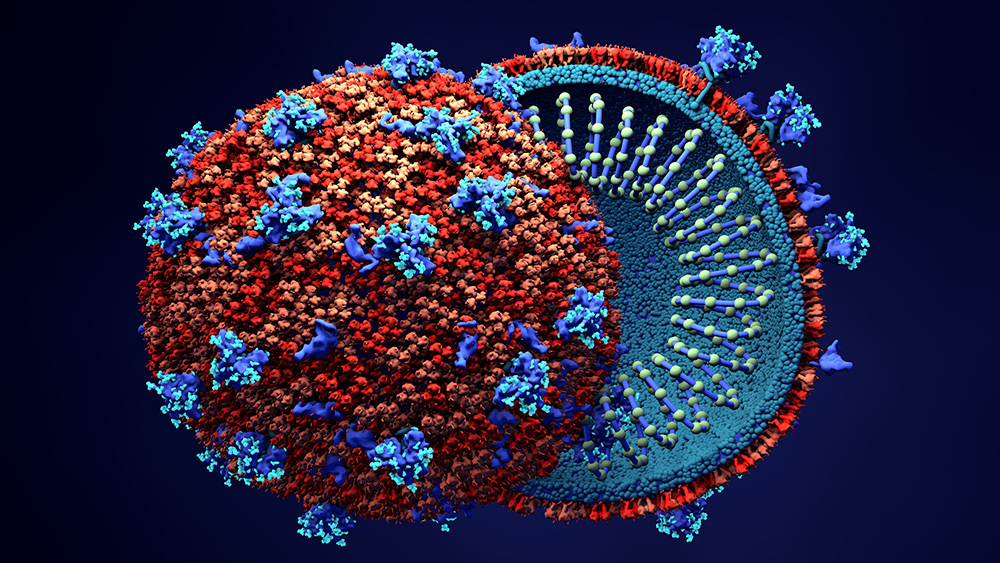Some gluten-free foods contain high levels of heavy metals, reveals study: How can you avoid these toxins?
06/11/2020 / By Divina Ramirez

Gluten-free foods like nuts, seeds, grains and starches are beneficial for people with celiac disease, an autoimmune condition triggered by gluten intolerance.
However, a recent review showed that regular consumption of gluten-free products as part of a gluten-free diet led to higher concentrations of toxic metals like arsenic in the blood and urine.
Published in the NFS Journal, the review also revealed an association between gluten-free diets and the risk of chronic conditions like heart disease and Type 2 diabetes.
Gluten-free diet: Health benefits and side effects
Gluten is a type of protein found in most varieties of whole grains including rye and wheat. It allows bread to rise during the baking process. Gluten is also responsible for the soft, fibrous texture of most kinds of pastries.
Some people might feel abdominal discomfort after eating foods that contain gluten. This reaction might just point to a mild intolerance for the protein. In such cases, the discomfort can easily be avoided by restricting the consumption of foods that contain gluten.
However, severe reactions to gluten including sharp stomachaches, diarrhea, constipation, weight loss and anemia might indicate a more serious problem in the form of celiac disease. People living with this autoimmune condition have to avoid gluten at all costs since it triggers severe intestinal inflammation.
Prior to their purported weight-loss benefits, gluten-free diets were “created,” so to speak, for the benefit of people with celiac disease. But even though celiac disease affects just 1.4 percent of the global population, gluten-free diets grew to become one of the most popular weight-loss diets.
However, there is no evidence to support the reported link between gluten-free diets and weight loss. That said, a gluten-free diet can lead to proper weight management over time since it promotes the regular consumption of whole, unprocessed foods like fruits, vegetables, legumes and lean meat.
Despite this, gluten-free diets also pose certain health risks and potential side effects. A 2018 review published in the Gastroenterology & Hepatology journal found that the reduced consumption of beneficial whole grains following a gluten-free diet resulted in a higher risk of heart disease. Several studies also reported that adults on gluten-free diets failed to meet all nutritional recommendations due to the severe restriction of food choices.
To date, celiac disease remains the sole acceptable justification for permanent and strict adherence to gluten-free diets.
Some gluten-free products contain toxic metals
A team of researchers from the University of Hohenheim in Germany found that gluten-free diets might be responsible for elevated heavy metal concentrations in the blood and urine. Several studies suggest that the boom of manufactured, non-organic gluten-free products containing rice flour might be responsible for this disturbing health risk.
Most of the available gluten-free products in the market substitute grains with rice-based products. Rice is prone to accumulate toxic substances like arsenic, mercury, cadmium and lead since it is grown under flooded conditions. Experts believe that contaminated irrigation water is to blame for the presence of these toxic substances in rice paddies.
The researchers also found that several studies reported high arsenic concentrations in rice-containing gluten-free products. Arsenic poses serious health risks including skin cancer, bladder cancer, lung cancer and heart disease.
Rice from countries like China, Thailand and Indonesia were also found to be contaminated with methylmercury, one of the most toxic organic forms of mercury. Methylmercury is also responsible for most cases of mercury poisoning in humans. Minimal exposure to this organic compound can lead to neurodegenerative diseases, blindness and birth defects.
Cadmium, a chemical element linked to cancers of the lungs, liver and prostate, is also present in certain rice-containing gluten-free products. (Related: Papaya reduces cadmium-induced brain damage.)
In addition to these findings, the researchers found studies that reported elevated lead concentrations in people who followed a gluten-free diet. Although the studies failed to determine the link between the two, research on lead poisoning has long since established the harmful effects of lead including learning difficulties, hearing loss and birth defects. Lead exposure is also linked to a heightened risk of heart disease and diabetes.
Based on all of these findings, the researchers concluded that some gluten-free products on the market do contain toxic metals that pose serious health risks and consequences for patients with celiac disease and healthy individuals alike.
Unless you source your food from trusted organic farmers, you can never be certain if the available produce at the supermarket are 100 percent organic and chemical-free. To avoid food poisoning, steer clear of processed gluten-free products containing refined flour, sugar, sodium and other additives.
There are also several gluten-free grains like quinoa, buckwheat and oats that provide good carbohydrates and soluble fiber. Beans, lentils, peas and chickpeas are also gluten-free, as are most root vegetables like potatoes and squash.
For more stories on the dangers of lead, mercury and other heavy metals, visit HeavyMetals.news.
Sources include:
Tagged Under: arsenic, Diets, gluten, heart disease, lead poisoning, mercury, rice, toxic chemicals, wheat

















